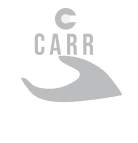Addiction recovery is a process that involves more than just stopping drug use; it also involves working on one’s mental, physical, and spiritual health. Although mental and emotional well-being are of essential importance in sober recovery, the importance of diet and physical well-being is often overlooked. It’s an important part of the healing process that can have a major impact on how long someone stays sober. Here, we’ll talk about how sober living facilities like the Zen Mountain House, incorporate healthy eating and exercise into their holistic approach to rehabilitation.
The Intersection of Diet and Sobriety
Several aspects of addiction rehabilitation are influenced by diet:
Nutritional Replenishment
Repairing the Body
Nutritional equilibrium can be disrupted by substance addiction. Some minerals, such as B vitamins and magnesium, might be depleted while consuming alcohol. Physical recovery is aided by eating healthy foods that restore these nutrients.
Boosting Immunity
A person’s immune system can be strengthened by eating healthily, which is especially important for those with a history of substance misuse. When the body is still weak after the healing process, this is of paramount importance.
Emotional Stability
Mood Regulation
Eating nutritious foods, especially those high in complex carbs, has been shown to have a calming effect on mood. Because people in recovery often experience a range of emotions, this can be very helpful.
Stress Reduction
The body’s ability to deal with stress is bolstered by a healthy diet. Relapse is often precipitated by stress, thus learning to cope with it via nutrition can be an effective relapse prevention strategy.
Coping Mechanisms
Substituting New Practices
Addiction often leads people to substitute unhealthy routines for more harmful ones. Putting energy into improving one’s food and nutrition can be a healthy strategy to deal with stress and other emotional difficulties.
Physical Activity as a Pillar of Recovery

In many respects, exercise is the perfect companion to a balanced diet:
Stress Reduction
Natural Stress Relief
Endorphins are natural mood boosters that are released in response to physical activity. Stress and worry, common precursors to relapse, can be mitigated with regular physical activity.
Improved Sleep
Insomnia is a common problem for people in the recovery process. Better sleep habits can be restored along with physical and mental health through regular physical activity.
Building Discipline
Routine and Discipline
Maintaining sobriety requires a strong sense of discipline, which can be developed by regular exercise. Recovery might reflect a dedication to one’s physical well-being.
Increased Self-Esteem
Reaching a fitness goal is a great way to increase your confidence and sense of accomplishment. This feeling of success can serve as a strong incentive for continued healing.
Social Connection
Building Healthy Relationships
Group exercise is a common feature of sober living communities, and it helps residents connect and build healthy friendships. Long-term success requires maintaining these relationships.
Accountability
Accountability is increased when exercising with others. It can be motivating to know that other people are dependent on you to keep to a healthy routine.
Zen Mountain House: Nurturing Diet and Physical Health
Diet and exercise are emphasized as integral parts of the sober living experience at Zen Mountain House in Aurora, Colorado.
Nutritional Support
Balanced Meals
Meals at the Zen Mountain House are designed to promote health and healing by providing a variety of nutrients. The diet has an emphasis on fresh produce, lean proteins, and other whole foods.

Nutritional Education
The need for a proper diet in the healing process is stressed to the residents. They are taught how to plan meals more healthfully and are encouraged to take an active role in the cooking process.
Physical Activity Programs
Exercise Routine
At the Zen Mountain House, we work exercise into our daily schedule wherever possible. Residents take part in fitness courses, outdoor excursions, and other group exercise programs designed to improve their physical health.
Mind-Body Practices
The Zen Mountain House provides yoga and meditation, two mind-body activities that have been shown to improve not only physical health but also stress management and emotional stability.

Holistic Well-being
Individualized Care
The staff at Zen Mountain House understands that every person has specific requirements. Dietary restrictions, activity preferences, and mental health issues may all be factors in individualized treatment regimens.
Comprehensive Support
The Zen Mountain House provides support for a person’s total health, including diet, exercise, mental health, and trauma recovery.
Conclusion
Maintaining a healthy diet and body is an important part of any successful sobriety program. It’s a vital part of getting better and staying sober in the long run. The Zen Mountain House in Aurora, Colorado, is just one example of a sober living facility that gets this and works to infuse it into all aspects of the community. Individuals in recovery can rebuild their bodies, stabilize their emotions, learn good coping methods, and lessen the likelihood of relapse if they pay attention to their food and physical health. As people in these homes work toward a future that is healthier, happier, and substance-free, this is a tremendous testimonial to the comprehensive care and commitment to well-being that they provide.




